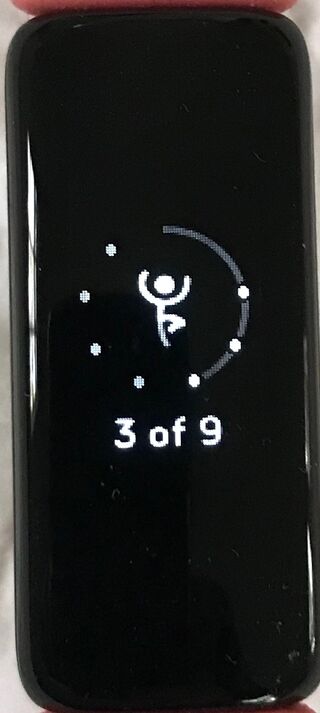Memory
Instead of Making Resolutions, Hold on to Your Habits
Science and experience say it’s a better way to change.
Posted December 30, 2020 Reviewed by Gary Drevitch

This year, one of my holiday gifts was a FitBit. I was tickled. Not just by its neon pink band, but by the fact that someone in my household – someone who has been with me since the beginning of the pandemic — thought I would like it. Me, the kid who hoped she’d be sent to the library during gym class. Me, the girl who hid when classmates picked teams. Me, the woman who went years without owning sneakers. Me, the mom who stayed home while the family biked and hiked. I was also given yoga pants. My “pod” thinks I’m an exerciser.
And they are right.
What happened? How did I change? I can tell you that it wasn’t because of a resolution. I didn’t sit down and say, “I’m going to exercise every day.” I just started to do it, 5 minutes here, 10 minutes there. I walked more. I bought a yoga app. And 9 months later, I feel strange on a day that I don’t raise my heart rate at least a little.
Exercising is my new habit.
During the pandemic, many people have developed new habits. They bake their own bread and grow their own scallions. They walk more. They read more. They talk regularly to friends and have taken out their guitars. Most of them didn’t set out to do these things; they just walked and baked and gardened and zoomed to help cope with isolation, boredom, and anxiety. Like them, I developed my new habit by exercising more, not by deciding to exercise more.
Turns out, that’s the way habits work. According to Wendy Wood, a professor of psychology at the University of Southern California and the author of Good Habits, Bad Habits, habits are “formed by doing” rather than by planning or learning. Scientists who study habits have found that they are controlled by parts of the brain that are different and deeper than those used to make everyday decisions (Steinglass and Walsh 2016). Makes sense, then, that just deciding to change a habit rarely works.
Which brings us to New Year’s resolutions. Resolutions are generally made about habits, not about carefully thought-out decisions. “Starting on January 1, I’m going to stop drinking coffee/eating sugar/biting my nails/throwing my clothes on the floor” – you can fill in the blank. These are all habits. We do them without thinking. But today’s science suggests that these resolutions won’t touch them. Woods agrees that “the long-term memory systems in habit formation don’t shift with new resolutions.”
Just because I’m a psychiatrist doesn’t mean that I’m above making – and breaking – resolutions. I’ve done it scores of times. The gym membership that only exercised my guilt. The organizing app that never got past the middle of January. I tend to suggest to people that they NOT make resolutions, since they only succeed in making people feel worse than they already do in the doldrums of darkest winter.
But my Fitbit made me realize that this year, perhaps, we have a new opportunity. This year, we can capture changes we have already made. New behaviors that we like and that have become habitual during our locked-down lives: Reading more. Being more in touch with loved ones. Playing board games with our kids. Listening to podcasts. Whatever it is, we’re already doing it. Now the trick is to keep it going. How can we make that happen?
- Name it to capture it. The first thing to do is to recognize the habits you like. Name them. Recognize them. Note when, where and how you do them. They could be passing you by without notice, but they are there.
- Don’t do anything fancy. Once you recognize the habit, just let it be. Don’t buy 12 pairs of running shoes or 10 new board games. Good habits are like worn-in clothing: They don’t need to be gussied up.
- Think about how your new habit will fit into your old life. This is the trickiest part. In a few months, your pandemic life may begin to morph back into your pre-pandemic life. Could you walk to work? Listen to podcasts in your car? Let dough rise on Saturdays? Put a yoga mat in your office?
This year, instead of resolving to start new behaviors, try capturing the ones you already do. They are your new habits. With thousands of vaccines already administered, we can see the light at the end of the pandemic. Our pod-lives will soon be over and we’ll cross back to “real life.” I’m taking my Fitbit with me.
References
Wood W (2019) Good Habits, Bad Habits, Ferrar, Straus and Giroux, New York.
Steinglass JE and Walsh BT (2016) Neurobiological model of the persistence of anorexis nervosa, Journal of Eating Disorders, 4:19.


